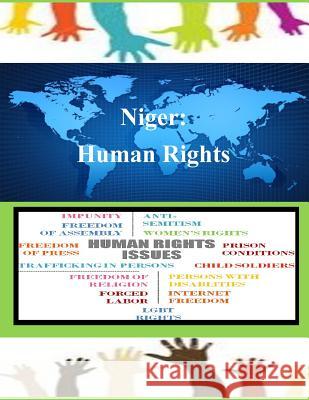Niger: Human Rights » książka
Niger: Human Rights
ISBN-13: 9781502865267 / Angielski / Miękka / 2014 / 30 str.
Niger is a multiparty republic. In 2011 voters elected opposition leader Issoufou Mahamadou president in a poll characterized by international observers as generally free and fair. Observers also considered the 2011 National Assembly elections free and fair. Authorities maintained effective control over the security forces. Security forces committed human rights abuses. The most serious human rights problems during the year included harsh and life-threatening prison and detention center conditions, discrimination and violence against women and children, and forced labor and caste-based slavery among some groups. Other human rights problems included attacks by armed groups that resulted in deaths. Arbitrary arrest and detention, prolonged pretrial detention, and executive interference in the judiciary continued. Infrequent restrictions on freedoms of press, association, assembly, and movement occurred. Official corruption was pervasive. Female genital mutilation/cutting (FGM/C), trafficking in persons, and child labor continued. The government took some steps to prosecute officials who committed abuses; however, impunity was a problem. Terrorists bombed state economic interests, killing several civilians.
Zawartość książki może nie spełniać oczekiwań – reklamacje nie obejmują treści, która mogła nie być redakcyjnie ani merytorycznie opracowana.











